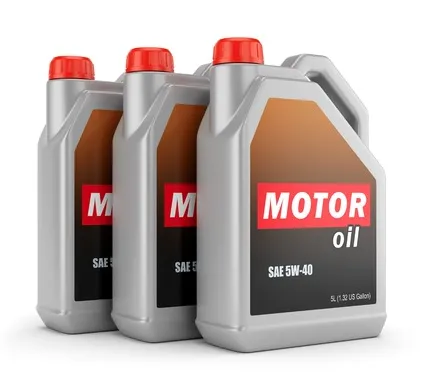Latest News

Understanding Different Types of Motor Oil: Making Informed Choices for Your Vehicle
When it comes to maintaining the health and longevity of your vehicle's engine, choosing the right motor oil is crucial. Motor oil is the lifeblood of your engine, responsible for lubricating moving parts, reducing friction, and dissipating heat. However, with so many options available, understanding the different types of motor oil can be overwhelming. In this blog, we'll break down the various types of motor oil, including conventional, synthetic, and high-mileage oils, to help you make informed choices and ensure your engine runs smoothly.
Conventional Motor Oil
Conventional motor oil, also known as mineral oil, is derived from crude oil. It's the most traditional type of motor oil and has been used in engines for decades. Conventional oil is cost-effective and readily available, making it a popular choice for many vehicle owners. However, it has some limitations compared to synthetic oils.
Pros of Conventional Oil:
Affordable: Conventional oil is generally more budget-friendly than synthetic alternatives.
Widely available: You can find conventional oil at most auto parts stores and service stations.
Suitable for older engines: It's often recommended for vehicles with low-mileage and older engines.
Cons of Conventional Oil:
Limited performance: Conventional oil tends to break down at higher temperatures, reducing its ability to provide optimal lubrication.
Frequent oil changes: You may need to change conventional oil more frequently than synthetic oil due to its lower resistance to heat and oxidation.
Synthetic Motor Oil
Synthetic motor oil is engineered in a lab to provide superior performance and protection for your engine. It's designed to withstand extreme temperatures and offer better lubrication, making it an excellent choice for modern vehicles.
Pros of Synthetic Oil:
Enhanced engine protection: Synthetic oil maintains its viscosity at higher temperatures, reducing wear and tear on engine parts.
Improved fuel efficiency: The reduced friction provided by synthetic oil can lead to better gas mileage.
Extended oil change intervals: Synthetic oil typically lasts longer than conventional oil, reducing the frequency of oil changes.
Cold-weather performance: Synthetic oil flows better in cold weather, ensuring smooth startups in winter.
Cons of Synthetic Oil:
Higher cost: Synthetic oil is more expensive than conventional oil, but its benefits may outweigh the added expense.
Overkill for some vehicles: If you drive an older vehicle with low-mileage, synthetic oil may not be necessary.
High-Mileage Motor Oil
High-mileage motor oil is specifically formulated for vehicles with higher mileage, typically those that have surpassed 75,000 miles. This type of oil contains additives designed to address the unique needs of older engines.
Pros of High-Mileage Oil:
Reduced oil consumption: High-mileage oil can help minimize oil consumption and reduce leaks in older engines.
Enhanced engine protection: It contains conditioners that rejuvenate and protect aging engine seals and gaskets.
Specially formulated: High-mileage oils are engineered to cater to the specific needs of older engines, providing better performance and longevity.
Cons of High-Mileage Oil:
Costlier than conventional oil: It's generally more expensive than conventional motor oil but may be a worthwhile investment for older vehicles.
Conclusion
Choosing the right motor oil for your vehicle is a crucial decision that can impact engine performance and longevity. Each type of motor oil has its advantages and disadvantages, and the choice largely depends on your vehicle's age, mileage, and usage patterns. Conventional oil is suitable for budget-conscious drivers with newer vehicles, while synthetic oil offers superior protection and performance. High-mileage oil is tailored to the needs of older engines, reducing wear and extending their lifespan.
To make an informed choice, consult your vehicle's owner's manual and consider factors like your driving habits, climate, and budget. Regular oil changes with the appropriate type of oil will help ensure that your engine runs smoothly and remains reliable for years to come. Remember that maintenance is key to keeping your vehicle on the road, and the right motor oil is a critical part of that equation.




